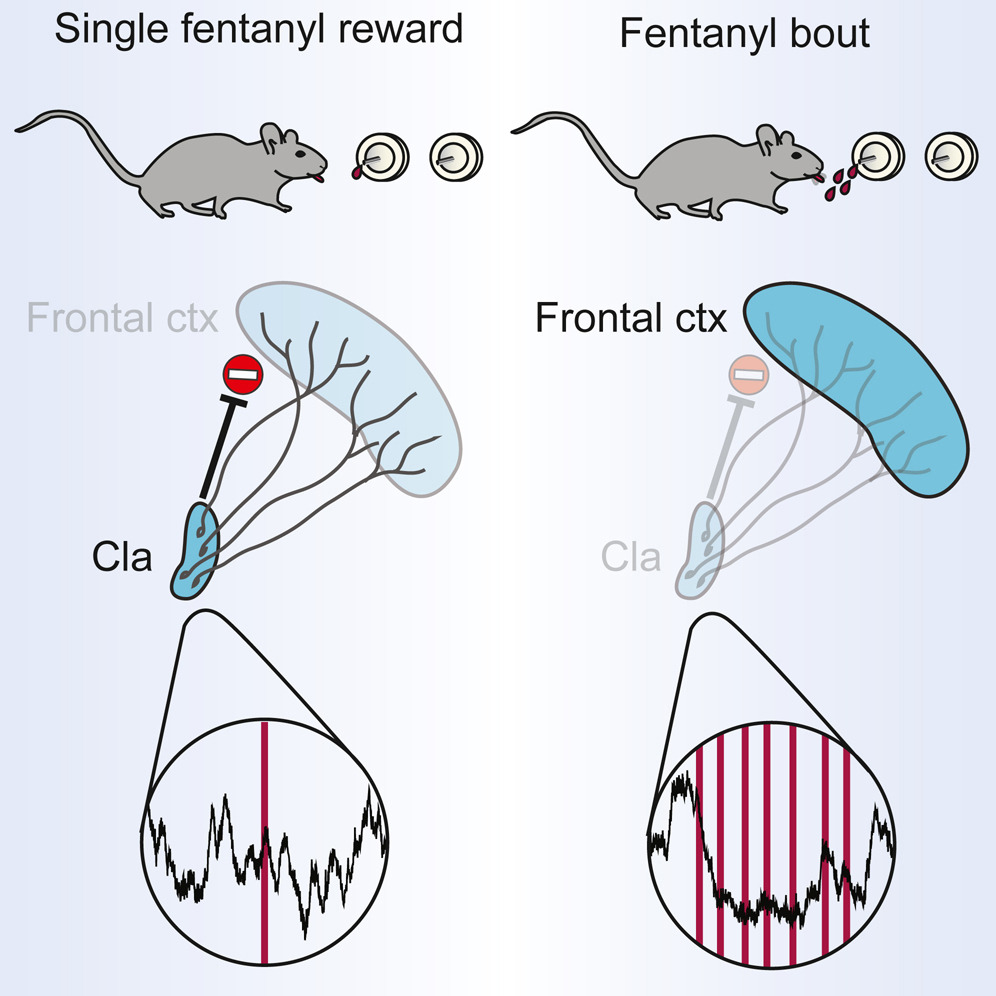Fentanyl is a synthetic opioid that is a major contributor to the current opioid addiction crisis. In this paper, Terem et al. report that claustral neurons projecting to the frontal cortex limit oral fentanyl self-administration in mice, and found that fentanyl transcriptionally activates frontal-projecting claustrum neurons . Furthermore, the authors found that upon initiation of bouts of fentanyl consumption, these claustral neurons exhibit a unique suppression of Ca2+ activity. Performing optogenetic stimulation of frontal-projecting claustral neurons, thereby intervening in this suppression, caused a decrease in bouts of fentanyl consumption. In contrast, constitutive inhibition of frontal-projecting claustral neurons (in the context of a novel, group-housed, self-administration procedure) increased fentanyl bout consumption. This same manipulation also sensitized conditioned-place preference for fentanyl, and enhanced the representation of the fentanyl experience in the frontal cortex. Together, these results indicate that claustrum neurons exert inhibitory control over frontal cortical neurons to restrict oral fentanyl intake. Upregulation of activity in the claustro-frontal projection may be a promising strategy for reducing human opioid addiction.
Figure 1:

For more details, please visit – Discovery of a Neural Brake on Opioid Consumption
